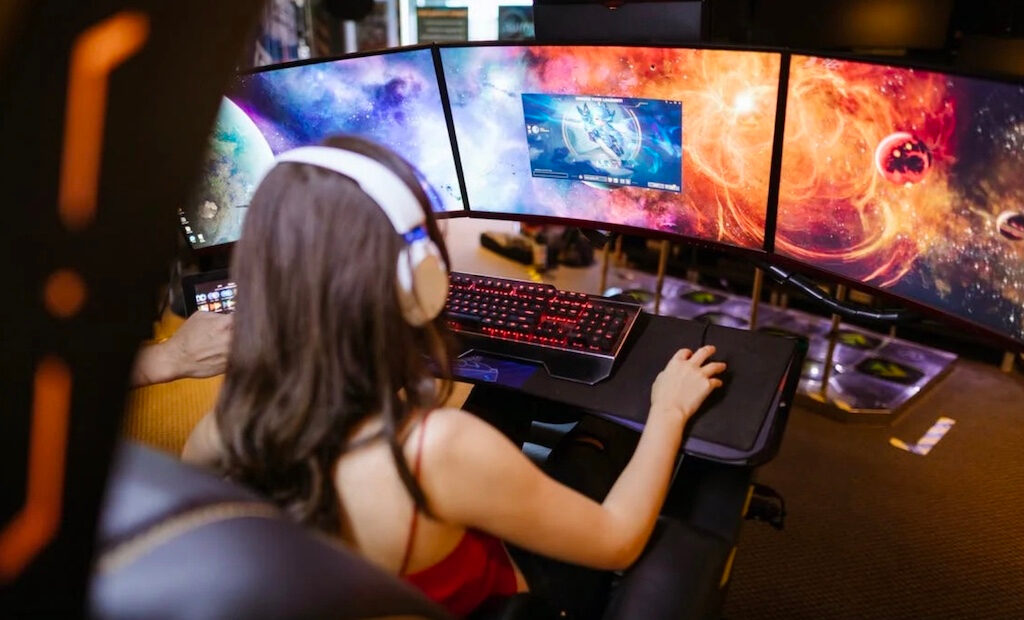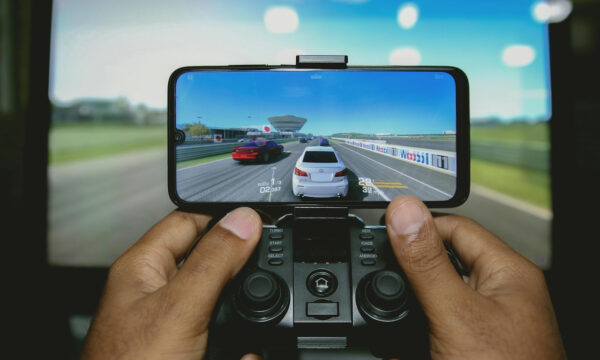Interactive entertainment in the UK: AI storytelling and gamified experience

Artificial intelligence (AI) and interactive technologies are changing various industries, from education and tourism to video gaming and live events. They are helping produce more personalised, immersive, and dynamic experiences for audiences, enhancing gameplay while boosting engagement and satisfaction.
As people are no longer happy to remain passive, more companies are turning to the advanced technologies to allow them to actively participate in an experience. Continue reading to learn how AI storytelling and gamified experiences improve interactive entertainment in the UK.
More complex and dynamic entertainment narratives
Artificial intelligence provides more unique experiences when playing games at the latest online casinos or on a video game console. It allows companies to offer more complex, dynamic storytelling, as the technology will adapt to a player’s decisions in real time.
For instance, AI-controlled characters can adapt to a player’s behaviours, making the characters truer to life and elevating the gaming experience. Plus, it can analyse a player’s behaviour to provide more personalised tasks, challenges, and rewards.
AI and gamification aren’t only reshaping the gaming industry, but they are influencing various forms of entertainment. For instance, the Netflix 2018 film Black Mirror: Bandersnatch enabled viewers to take control of the show’s narrative by making decisions, providing viewers with alternative storylines and outcomes. For this reason, more storytellers and content creators are embracing the technologies to provide audiences with more interactive experiences.
Engaging and educational mobile app experiences
Gamification isn’t restricted to gaming, film, or TV, as more industries are embracing the innovative technology to engage with their target audiences. In the UK, many healthcare, fitness, and education companies have incorporated gamification into their mobile apps to support learning, personal development, and motivation.
Duolingo, a language learning app, is a prime example of the technology, as it uses gamification elements such as rewards, levels, streaks, and badges to enhance the learning experience, reward players for their efforts, and encourage continued engagement.
Using various gamification elements helps players to remain more engaged in the game and provides them with a sense of achievement. As a result, they are more motivated to click on the app to boost their knowledge and test their skills.
Improved social experiences and competitions
Gamification is improving social experiences in various games, apps, and platforms. For example, some incorporate in-game rankings, competitive leaderboards, and collaboration experiences to support interactivity and create a stronger sense of competition or community.
Endless possibilities for users
AI supports the creation of more dynamic, complicated virtual environments, providing users with levels and experiences when playing a game. It provides players with endless possibilities each time they play a game online, on a video console, or via a mobile app. It ensures each player’s gaming experience is unique and they can enjoy a new experience each time they play.
Greater performance monitoring and engagement
Many fitness and sports apps and platforms use artificial intelligence to keep users motivated to exercise and achieve their goals. For instance, many use the advanced technology to monitor a person’s performance, alter fitness or sporting challenges, and provide various gamified rewards to support engagement and progress.
Conclusion
Artificial intelligence and gamification are changing interactive entertainment in various ways. For instance, they can provide more layered storytelling, unique rewards, endless possibilities, greater social experiences, and performance monitoring. As a result, they are providing users across the UK and beyond with more adaptable, personalised, and responsive experiences, enhancing gameplay, education, and enjoyment.
As the technologies continue to advance and grow in popularity, they are likely to become more commonplace in games, mobile apps, platforms, and experiences in the future. For instance, people can expect more customised q, immersive, and sophisticated online experiences and enhanced social experiences moving forward.
The editorial unit























Facebook
Twitter
Instagram
YouTube
RSS